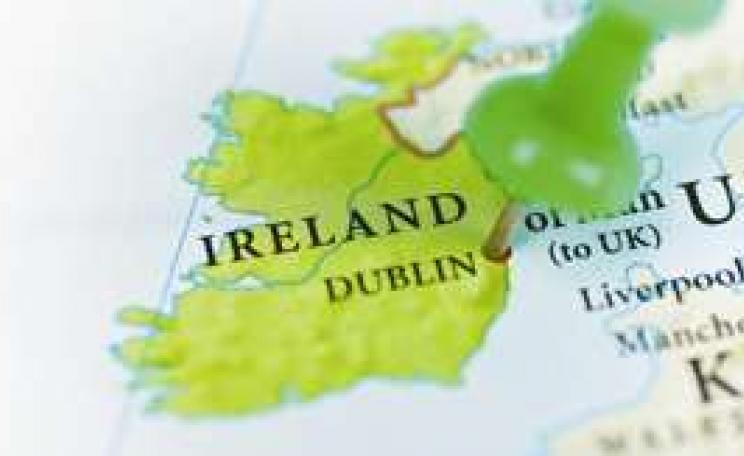In the aftermath of WWII, the world’s governments, believing a world united in trade would also be one united in peace, sought to develop a vast global trading network. To this end they set up the Global Agreement on Trade and Tariffs (Gatt) – a set of rules for the regulation of trade.
As the years went on and global trade grew unimaginably large, Gatt was continually modified and became increasingly complicated and unwieldy. The solution was to create a new organisation – one that would decide the rules under which all trade would be conducted, and which would have the power to enforce those rules and impose huge financial sanctions on nations that failed to comply. That organisation was the World Trade Organisation.
Whereas Gatt dealt only with trade in tangible products such as bananas, cotton or steel, the WTO’s remit is far broader; its powers extend over investment policy, patent law and the provision of services like healthcare and education – services that have traditionally been seen as the responsibility of national governments. Unlike the governments whose responsibilities it has assumed, however, the WTO is unelected, global in reach and run totally by and for the benefit of multinational corporations. Thus, the organisation has ruled against every single environmental law it has ever reviewed.
But even this was not enough for the corporations. Ever since The WTO’s first ministerial conference in Singapore in 1996, they have lobbied to have regulations loosened ever further. At Singapore, at Geneva in 1998 and at Seattle in 1999 these efforts failed. Not only was there opposition on the streets, but also in the meetings from the governments of many developing countries.
At the WTO’s fourth ministerial conference in Doha in November 2001, however, the corporations and industrialised country governments made a major advance. Using a variety of underhand tactics, they succeeded in launching a new round of trade negotiations that gave the green light to talks on creating new agreements.
From 10 to 14 September the WTO will meet for the fifth time in Cancun, Mexico. Outlined here are the key proposals for new agreements, the agreements that are currently under negotiation and a summary of the changes being demanded to previous trade round discussions.
New agreements
The European Union, with the tacit support of the US, is calling for four new agreements – on investment, government procurement, competition and trade facilitation. They are all designed to facilitate the growth of the world’s largest corporations. At Cancun, governments must decide whether or not to start negotiations on these issues. Negotiations would inevitably lead to new agreements.
1 New investment agreement
Multinational corporations need to open up markets for investment. High up on their agenda, therefore, is the new investment agreement, designed to force governments to: • give corporations the automatic right to invest in any WTO-member country; • stop introducing conditions on foreign investment, such as the need for firms to employ local labour or to respect local environmental laws; • stop passing any law that could be interpreted as an ‘appropriation’ of foreign investment – ie, laws that might limit corporations’ profits; • stop favouring domestic companies; and • give foreign corporations the right to sue governments directly for any breach of the agreement . If the corporations succeed, all governments of WTO countries will be prevented from: • passing or maintaining environmental or social laws which foreign corporations claim reduce their profits; • banning corporations with bad social or environmental reputations from establishing themselves in their country; • protecting and supporting local firms; and • introducing financial measures to protect national currencies and avoid financial instability.
2 New government procurement agreement
Corporations want to take over the services currently controlled by countries’ elected governments. The new government procurement agreement is designed to: • require governments to make public all decisions relating to the awarding of contracts paid for with public money; • make it compulsory for governments to give corporations the automatic right to compete for government contracts in every WTO country; • ban conditions being imposed on the foreign multinationals that compete for these contracts; and • force governments to treat foreign corporations at least as favourably as domestic firms in the contract-awarding process. Should negotiations on this agreement be initiated at Cancun, governments will no longer be allowed to give preference to local companies for the supply of goods and services. Nor will they be allowed to impose any requirements, such as the need to employ local people or use local and sustainably-sourced resources, on companies that win government contracts.
3 New competition agreement
As well as opening up markets across the world, the corporations also need to make sure no local firms stand in their way. Hence they are lobbying for a new competition agreement, which would: • oblige governments to provide open competition for foreign firms in local markets by treating foreign companies at least as favourably as they treat domestic ones; and • restrict the right of local firms to resort to practices that advantage them, such as protecting exclusive dist-ribution networks that are often built up over many years. If the corporations have their way, this agreement would remove any advantage held by domestic companies in their home markets, and, given the economic might of transnational corporations, drive local companies out of business.
4 New trade facilitation agreement
Finally, to make sure everything runs smoothly, the corporations want a new trade facilitation agreement. This would require governments to remove any remaining impediments to the physical trade in goods; it would, in other words, weaken legitimate customs controls. For example, regular physical examination of goods by officials so as to ensure payment of customs duties could be replaced with checks on only a small number of cases selected on a random basis. This would greatly increase the risk of duty avoidance.
Already under negotiation
As well as the four new agreements, there are three major agreements already being negotiated.
1 Trade in services
At Cancun, developing-country governments will be pressured to agree to open up more of their service sectors to foreign companies. This would: • give foreign corporations the right to take over domestic services such as the provision of water, energy, transport, and, eventually, even health and education; • limit the power of governments to regulate these services; and • prevent governments from favouring local companies when deciding who should run these services. If an agreement is reached, it would: • increase the cost of essential services so that people might no longer be able to afford them; and • restrict governments’ ability to pass laws to redress any adverse social and environmental impacts attendant on the provision of services.
2 Market access for non-agricultural products
The US government is calling for the removal of all tariffs on imports of non-agricultural products. New Zealand’s government is going one step further and calling for so-called ‘non-tariff barriers’ (any laws that restrict trade) to be removed too. Corporations want this to apply to wood, fish, water and other natural resources as well. The removal of such barriers would: • accelerate the collapse of domestic industries and increase unemployment in the developing world; and • accelerate the pace at which natural resources are extracted, as they would become cheaper to trade; this, in turn, would lead to even greater destruction of forests, fisheries and other natural resources.
3 Trade and environment
Sometimes the requirements of WTO agreements and multilateral environmental agreements like the Kyoto Protocol clash. At Cancun corporations want to clarify which have precedence in such situations, or rather, they want to make sure that WTO agreements do. The ramifications for the environment would be disastrous.
Changes demanded
At Doha industrialised-country governments promised developing countries that they would agree so-far-undelivered reforms to the following existing WTO agreements:
1 Agreement on agriculture
Developing countries want to renegotiate an agreement on agriculture officially aimed at reducing subsidies to farmers and import tariffs on food in the industrialised world (developing countries have already made swingeing cuts in these areas). They argue that unless this agreement is changed, subsidised imports will continue to drive their farmers out of business while preventing them from exporting their products to markets in the industrialised world. However, European farmers are successfully lobbying EU governments to block any change to the system.
2 Agreement on intellectual property
Developing countries want to change the agreement on trade-related intellectual property rights (Trips) to enable developing countries that manufacture copied versions of life-saving patented drugs to export them cheaply to other developing countries from 2006. Lobbied by US pharmaceutical giants, the US government is leading efforts to block this request. If this situation remains unchanged, millions of people will die unnecessarily because of their inability to afford the high prices Western pharmaceutical companies charge for life-saving drugs. These drugs include anti-retrovirals needed to combat HIV/Aids.
3 Enforce special and differential responsibilities
Developing countries want to enforce the principle of ‘special and differential responsibilities’, which would allow them to protect their industries and farmers. Otherwise, the latter will continue to be driven out of business by cheap imports and widespread damage will be inflicted on Third World economies.
Conclusion
Desperate to see the few agreements that work in their favour met, developing countries may give way to some of the industrialised world’s demands to open up their markets. However, nothing is certain. Protest, petitioning and public outrage could make it increasingly difficult for agreement to be reached at Cancun and in the months that follow. The deadline set at Doha was January 2005. If nothing is finalised by then, it’s back to the drawing board.
Simon Retallack is commissioning editor for The Ecologist
This article first appeared in the Ecologist June 2003





